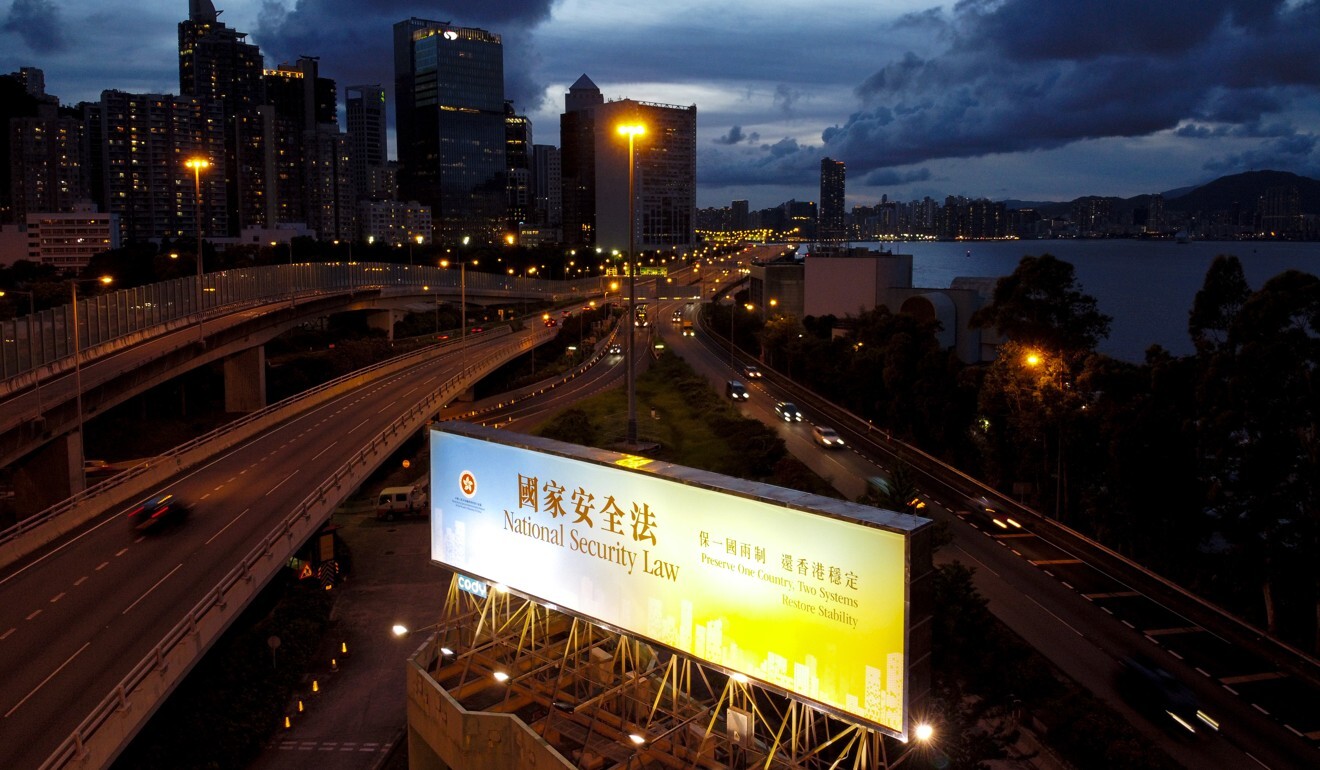
Hong Kong Bar Association chief has ‘no intention’ of stepping down amid firestorm of criticism from city’s pro-Beijing camp
- Paul Harris SC, attacked over past comments and his membership of Britain’s Liberal Democrats, tells Post he is ‘determined to see it through’
- The lawyer has also come in for criticism from Beijing’s representatives in the city over his views on the national security law
The Hong Kong Bar Association’s embattled chairman has no intention of stepping down from his post, he told the Post on Thursday, despite a recent wave of criticism from the city’s pro-establishment camp over his past remarks and current affiliation with the British Liberal Democrats.
Paul Harris SC said the attacks on his political affiliation were “an attempt to distract people from current concerns about erosion of freedom in Hong Kong”.
“I have no intention of resigning as chairman of the Bar. I was reluctant to take up the job but was persuaded to do so by colleagues who thought that my experience of constitutional and human rights issues was particularly useful at the present time,” he said a written reply to a Post inquiry.
I have a track record for working hard and getting things done and I intend to keep it up
Prominent barristers in the pro-establishment bloc on Wednesday urged the association’s governing council to decide if Harris should remain as chairman after it emerged he was a Liberal Democrat and had only stepped down as an elected councillor of the Oxford City Council before his election.
They said Harris’ party membership was problematic given the soured relationship between the government and Britain.

In retaliation, Hong Kong announced that BN(O) passports could no longer be used for travel, later adding that banks would no longer accept them as identification either.
Since winning the uncontested election for chairman last month, Harris has attracted criticism from Beijing’s representatives over his views on the national security law.
Former chief executive Leung Chun-ying also noted on Facebook that Harris had written in a 2008 Financial Times article that “Tibet has a stronger self-rule case than Kosovo”.
Leung questioned whether the association could continue to defend the independence of the bar, or the city’s rule of law, when its chairman was a Liberal Democrat who supported Tibetan self-determination.
Pressure builds on Bar Association to remove chairman over ties to British political party
Harris said he remained determined to stay on and fulfil his duties as chairman.
“Now that I have taken on the job, I am determined to see it through. I plan to involve myself in all aspects of the Bar’s work to see where improvements can be made,” he said. “I have a track record for working hard and getting things done and I intend to keep it up.”
He said he would not quit his party either.
“I would consider resigning from membership of the Liberal Democrats if I thought that would be helpful to the Hong Kong Bar or to Hong Kong. However, I think that is unlikely,” he said.
“The English Bar has many examples of chairpersons who were both members of political parties and strong and independent defenders of the Bar.”
Arrest of Hong Kong opposition figures a ‘fairly obvious’ abuse of law, says new Bar Association chair
Dismissing suggestions he should have publicly declared his political affiliation or revealed his plans to resign from the Oxford City Council before his election, Harris said he did not see anything he should have done differently.
“Members of the previous Bar Council discussed my possible candidacy with me before I put myself forward, and we talked specifically about my Liberal Democrat links, which were well-known to them,” he said.
“I said that I planned to resign as a Councillor but not from the party. This was acceptable to the Council members and I put myself forward on that basis.”
This is not the first time an association chairman has come under fire for their ties to a political organisation.
In 2008, then association chairman Rimsky Yuen Kwok-keung, who served as secretary for justice from 2012 to 2018, announced he had agreed to serve as a delegate to the Guangdong Chinese People’s Political Consultative Conference, the provincial government’s top advisory body.
Opposition lawmakers at the time asked Yuen to choose between the two roles, but he rejected that call.

